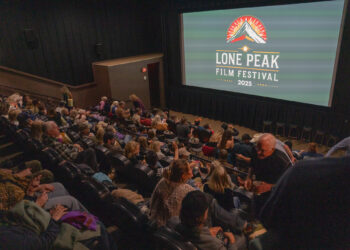If only it’s willing to shift itself
By Todd Wilkinson EBS ENVIRONMENTAL COLUMNIST
What is environmental advocacy?
This summer I’ve been having lively discussions about the meaning of it with “Mountain Journal’s” college intern who is here in Bozeman with us from Whitman College for a few months.
I’ve asked him to reflect upon and explore this question: Is simply partaking in an activity an act of conservation?
Can a person, for instance, who hikes into the Greater Yellowstone backcountry claim that, simply by moving one’s legs, it is doing something positive for the place we are exploring? Yes, think about the proposition, because it’s a belief some people have.
Can trail building be counted as an act of conservation? Are we being conservationists and promoters of water quality when we wet a dry fly on the river? Are we confronting and registering our concern about climate change when we downhill ski?
Are we doing something brave for the environment by “liking” a story on Facebook?
Such inquires can be extended to any outdoor activity. It all comes down, of course, to identifying what exactly we are trying to conserve.
The late Jackson Hole conservationist Mardy Murie, in the very first discussion I ever had with her as a 24-year-old journalist in 1986, told me this on her cabin’s front porch in Moose, Wyoming. She said conservation is about protecting rare things against being overrun by common thoughtless things; it’s not about focusing purely on what benefits us but what perpetuates the things in nature that give us inspiration or which cannot advocate for themselves, such as an animal or a river.
Conservation, she noted, is about being willing to take a risk, to advance a right cause that might be unpopular. For Murie, wildness in Greater Yellowstone and Alaska meant people not imposing their immediate needs upon the needs of other creatures that live there.
Amid these three years of the Trump Administration, public-land-loving Americans and those who cherish public wildlife and support having tough environmental laws on the books, have been left reeling by actions taken by the President and his advisors.
Citizens want to do something in response, but what? At the same time, the outdoor recreation industry—of which all of us are connected in our role as consumers of stuff—has claimed that getting more people venturing into wild places will result in better landscape protection and help repel destructive policies.
But how? Outdoor recreation annually generates $887 billion in economic activity in the U.S., but how does the industry directly benefit a grizzly bear?
Besides getting itself into hot water with those demanding that the American conservation movement become more representative and respectful of non-white people, organizers of the Jackson Hole SHIFT conference continue to pedal a mantra. It is one SHIFT still refuses to reflect upon in any meaningful way.
SHIFT’s slogan is “where conservation meets adventure.” Yet so far, in its brief history and with tourism promoters being one of its main funders, SHIFT continues to push the idea that more human use of wild places will generate conservation dividends.
Again, how does this work? How does building more mountain biking and e-bike trails result in wildlife habitat or better the prospects for, say, protection of wildlife migration corridors? How would the pushes made by Jackson Hole packrafters to overturn a river boating ban in Yellowstone have contributed to better conservation in America’s oldest national park?
This year, SHIFT is again trumpeting the blatantly-obvious fact that spending more time in nature is good for our health. Not long ago, I reached out to SHIFT and suggested they feature sessions helping attendees know what actions they might take for protecting the health of wild places.
SHIFT, obviously well-intended, has the potential to move forward the public conversation about conservation in Greater Yellowstone. I know this is going to sound harsh but so far, the festival has only really been about white recreationists pushing to open more parts of the still-wild backcountry to their own activities and asking the ethnic and gender diversity movement, which feels tokenized, to give them cover.
What’s missing? Plenty, actually, including promoting ecological literacy and, as indigenous people say, respect for diversity of all life forms.
I remember having a chat with SHIFT organizers a few years ago and they were utterly unaware of the history of public lands in our region and why specific environmental laws were enacted. They had little knowledge of previous conservation battles that had been waged and how advocates set aside their own self-interest to instead safeguard lands and wildlife diversity they might never see or be able to exploit.
No one needs permission from someone else to care about the natural world. No one needs approval to become an advocate for nature’s protection. That power resides in each one of us, not because of our racial or gender identity or political party affiliation, or because we’re a dues-paying member of an environmental organization or hunting and fishing group, or because a person flies across the country to attend the SHIFT conference.
Conservation, Murie once told me, is about being able to self-reflect on what one is willing to give up. Without bold acts of conservation taken by previous generations, we wouldn’t be referencing “the Greater Yellowstone Ecosystem” today as a globally-extraordinary region. Without new bold acts of conservation being adopted now, we may lose the natural qualities that still make Greater Yellowstone uncommon.
SHIFT has done little to take the ethical introspection of Mardy Murie to heart. Without really confronting these tough questions, then why does it exist?
Todd Wilkinson is the founder of Bozeman-based “Mountain Journal” (mountainjournal.org) and is a correspondent for “National Geographic.” He’s also the author of “Grizzlies of Pilgrim Creek” about famous Jackson Hole grizzly bear 399, which is available at mangelsen.com/grizzly.














